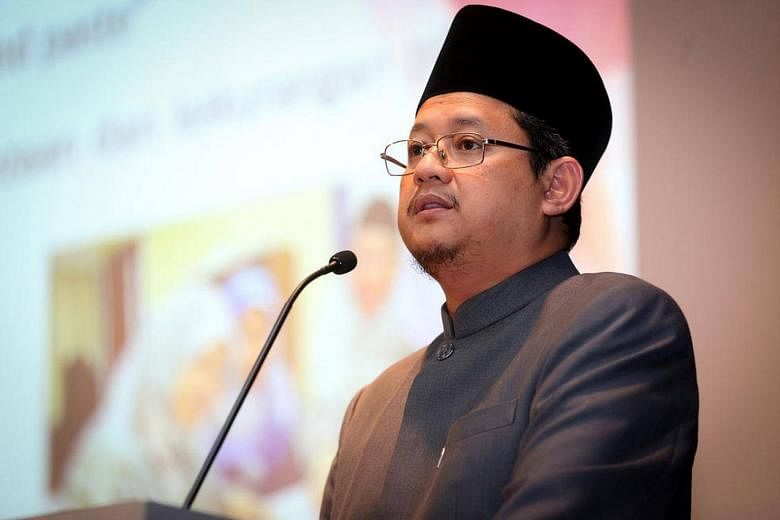Twitter posts, first-person shooter video games and rap videos - the Islamic State in Iraq and Syria (ISIS) terror group has tapped virtually all forms of media to reach out to its followers.
In one computer game, players assume the persona of a young militant, gunning down American soldiers while Arabic music plays in the background. This is the form that terrorist propaganda and ideology take these days.
So while ISIS is slowly ceding its territory in the Middle East, on the Internet, it is spreading its tentacles far and wide, an Insight round-table discussion heard.
The terror group's use of social media has been a great "force multiplier", helping it to attract followers and influence youth around the world, said Associate Professor Kumar Ramakrishna, head of policy studies at the S. Rajaratnam School of International Studies and one of the panellists.
ISIS' online influence and capability is something that security agencies are trying hard to match, said Prof Kumar.
The authorities estimate that more than 1,000 South-east Asians have flocked to join ISIS' self-declared "caliphate" in Iraq and Syria.
These are not just fighters, there are people from all walks of life - from entire families to professionals such as lawyers and administrators, said Prof Kumar.
"They want to build a state, not just an army," he said, adding that ISIS' message is simply this - "You are nobody in your country, but over here you are somebody, we will give you status, you'll be part of something exciting, building up this new caliphate".
The idea that Muslims must establish and live in an Islamic state, or caliphate, is a point ISIS pushes relentlessly, although the majority of mainstream Islamic scholars say there is no justification for this call.
ISIS' effectiveness in using social media to proselytise has led experts like Prof Kumar to question if agencies or mainstream religious groups could use the same platforms to draw people away from radical ideology.
Citing the example of a well-read blog written by a Malaysian doctor who travelled to Syria and then married a Moroccan ISIS fighter, he said: "There's so much interest in it, how can we come up with something which will be as interesting, which will attract people to read it rather than that?"
Another panellist, Mr Remy Mahzam, an associate research fellow at the International Centre for Political Violence and Terrorism Research, said ISIS has been successful in creating icons and personalities online. The challenge is for the "good guys" to do the same, he said.
He noted that some religious scholars here are already active online, such as Singapore's Mufti Mohamed Fatris Bakaram, who has more than 16,000 followers on Facebook, which he uses to share personal anecdotes and reflections.
Dr Fatris engages his audience with poems and Islamic teachings.
Mr Remy said reformed radicals can play a role too. He cited Ali Imron, a Jemaah Islamiah member who took part in the 2002 Bali bombings and is serving a life sentence in jail.
Ali Imron, who was spared the death penalty after he expressed remorse, now works with the Indonesian police on deradicalisation.
Someone like him could help sway youth away from negative influences, Mr Remy said.
Local religious teachers could take the lead here - from next year all Islamic religious teachers must register in the Asatizah Recognition Scheme, and registered teachers could help spread legitimate teachings online.
Religious scholars play a key role. "Many of these (radicalised recruits) don't have a proper understanding of religion in the first place, which is why they are vulnerable to ideological manipulation," said Prof Kumar.
Mr Remy added: "These are the personalities or the social media influencers that we need to identify and push their stories out. It's really about battling for the hearts and minds on the social media front that we need to look at."


